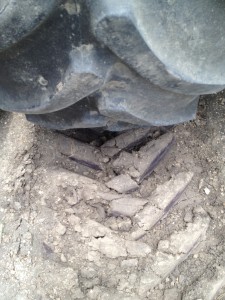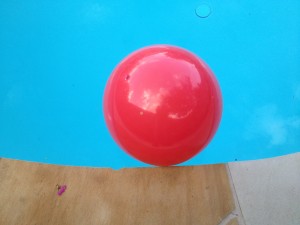“It’s raining hens and donkeys,” he texts, staring out the glassed door to the down-pouring deluge.
“Oh my!!” she texts back, adding, “Isn’t the phrase ‘It’s raining cats and dogs?’”
“Not today. There’s a platypus, and three flying pigs, and an ice cream sandwich. Sorry, that was a skunk, not an ice cream sandwich. It’s hard to see out there, with all the rain.”
Is it possible? she thinks, returning her attention to the meeting. Do such things really rain down?
Is it?
Do they?
Animal Precipitation?
Rainfalls of flightless creatures dropping from the heavens?
Yes. Of such occurrences, downpours of fish and frogs have been the most often observed and documented — although not together. It’s either been fish or frog, piscine or anura, but not both in the outside weather.
In the 1st Century AD, the long-winded and many-talented Roman, Pliny the Elder (to distinguish himself from his nephew, Pliny the Younger) wrote the encyclopedic Naturalis Historia to record all the knowledge of the world in one book. A massive and ponderous undertaking, the tome is the largest single work to have survived from the Roman Empire – its imposing size apparently ensuring its lasting security. Among the frayed and yellowed pages can be found a record of frogs and fishes flopping to the ground during heavy rain events, but no dogs or cats. Alas, from Older Pliny to today, there is yet to be the sighting of a puppy under an umbrella or a puss in rain boots floating and splashing among the descending droplets and pooling puddles.
Fishes-a-many have fallen to earth and the amazement of dodging and darting citizens from around the globe: Singapore in 1861, Rhode Island in 1900, Moose Jaw in 1903, Louisiana in 1947, India in 2008 and 2009, Australia on two days in 2010, the Philippines in 2012, and Tamil Nadu in 2013. Of course, we must not forget the landfalls of spangled perch upon the tiny and remote Australian town of Lajamau in the Northern Territory in 1974, 2004 and 2010. Still, the city of Yoro in Honduras holds the record. Each year during the month of August with the heavy rains, very alive light-colored fish miraculously arrive flapping in the puddles of Yoro. These Honduran fish are all about six inches long, completely blind and unlike any fish in any surrounding water body. It is the Lluvia de Peces, the Rain of Fishes.
Frogs, toads and tadpoles have also been sighted among the descending droplets: Japan for a month in 2009 and twice in 2010 in Hungary.
Other creatures have been spied floating from the skies: Jellyfish over Bath, England in 1894, spiders jumping from drop-to-drop over Argentina in 2007, and worms angling to the ground in Louisiana the same year.
Will the wonders never cease or the rains ever stop?
It seems not, as I glance outside again.
Is something else out there?
There, on the grass?
Moving?
In 2012 on a Southern California golf course, a 2-pound leopard shark smacked to the mat of the 12th tee as a golfer was about to swing. Dropping their clubs, the players grabbed the shark and rushed the flying fish to the nearby ocean where it revived and darted off. A club official commented, “We have your typical coyotes, skunks and the occasional mountain lion, but nothing like a shark.”
Remember Dorothy inside the tornado on the way to Land of Oz in the 1939 movie The Wizard of Oz. At the window of her flying farmhouse is a rooster and out that window in the storm are farm-animals-a-plenty: cows, chickens, hens, donkeys, pigs and maybe even a skunk. I don’t know, but it could be. Ask the Wizard, the Wizard of Oz, the Wonderful Wizard of Oz. As he knows so well: “What goes up, must come down.”
Fish and frogs have fallen over and over again. No one knows why. There are theories-a-plenty, but the best explanation is still Dorothy riding her cyclone to Oz. Somehow a very strong wind gushes up a big gulp with fishes, frogs and friends, swirls them about like ice in a 7-Eleven cup, and dunks down the whole lot, back to earth to the amazement of us below.
“The rain is almost over,” he texts, and adds, “We have a new pet!”
Is it possible? she thinks, Could it possibly be?
Will wonders never cease?
Grandpa Jim














